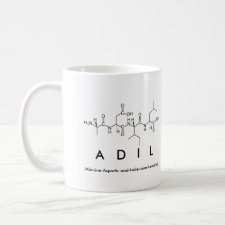
Authors: Ertürk G, Bereli N, Tümer MA, Say R, Denizli A
Article Title: Molecularly imprinted cryogels for human interferon-alpha purification from human gingival fibroblast culture.
Publication date: 2013
Journal: Journal of Molecular Recognition
Volume: 26
Issue: (12)
Page numbers: 633-642.
DOI: 10.1002/jmr.2305
Abstract: Interferons are important proteins for the immune system because of their antiviral, anti-proliferating and immunomodulatory activities. Therapeutic value of these proteins against certain types of tumors caused interest and investigations aimed to obtain highly purified interferons. Molecular imprinting is an efficient method for purification with high selectivity, specificity and good reproducibility. In this study, we utilized advantages of molecular imprinting technique for the purification of interferon from human gingival fibroblast culture. For this purpose, interferon α-2b imprinted poly(hydroxyethyl methacrylate) cryogel (hIFN-α-MIP) was prepared. Optimum adsorption conditions were determined, and maximum adsorption capacity of hIFN-α-MIP cryogel was found as 254.8 x 10^4 IU/g from aqueous solution. All interferon measurements are expressed as International Unit (IU), which is a unit measurement used to quantify biologically active substances like interferon based on their biological activity or effect. Selectivity experiments were performed using competitive proteins and repeated adsorption-desorption studies showed that the adsorption capacity maintained almost at a constant value after ten cycles. For the purification of interferon from human gingival fibroblast culture, fast protein liquid chromatography was used and the specific activity of the purified interferon α-2b on HeLa cell line was found between the values 3.45 x 10^8 IU/mg and 3.75 x 10^8 IU/mg. The results are promising, and the molecular imprinting technique is effective for the purification of interferon α-2b. Copyright -® 2013 John Wiley & Sons, Ltd
Template and target information: protein, interferon
Author keywords: interferon, molecular imprinting, Cryogel, human gingival fibroblast, specific activity



Join the Society for Molecular Imprinting

New items RSS feed
Sign-up for e-mail updates:
Choose between receiving an occasional newsletter or more frequent e-mail alerts.
Click here to go to the sign-up page.
Is your name elemental or peptidic? Enter your name and find out by clicking either of the buttons below!
Other products you may like:
 MIPdatabase
MIPdatabase









